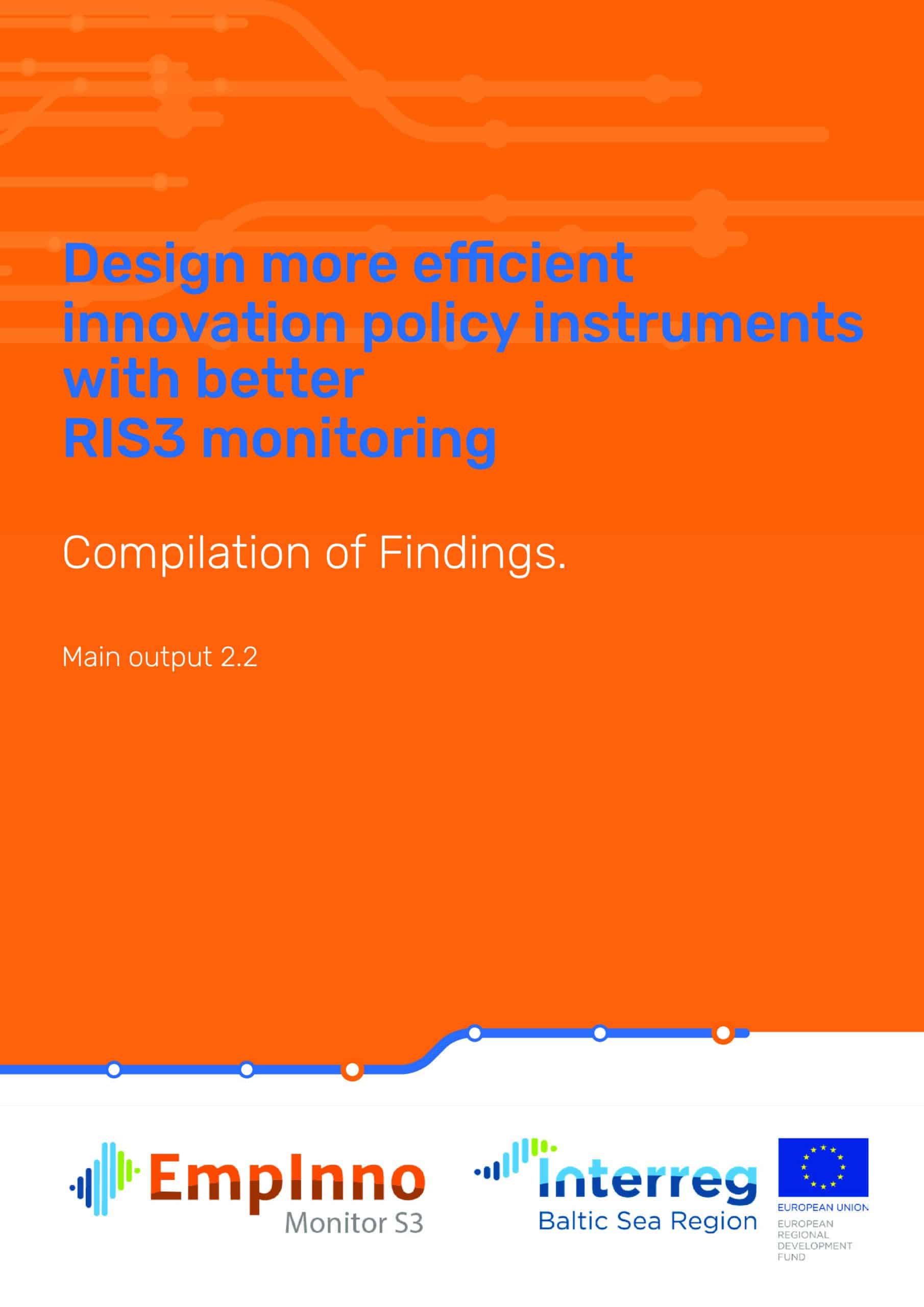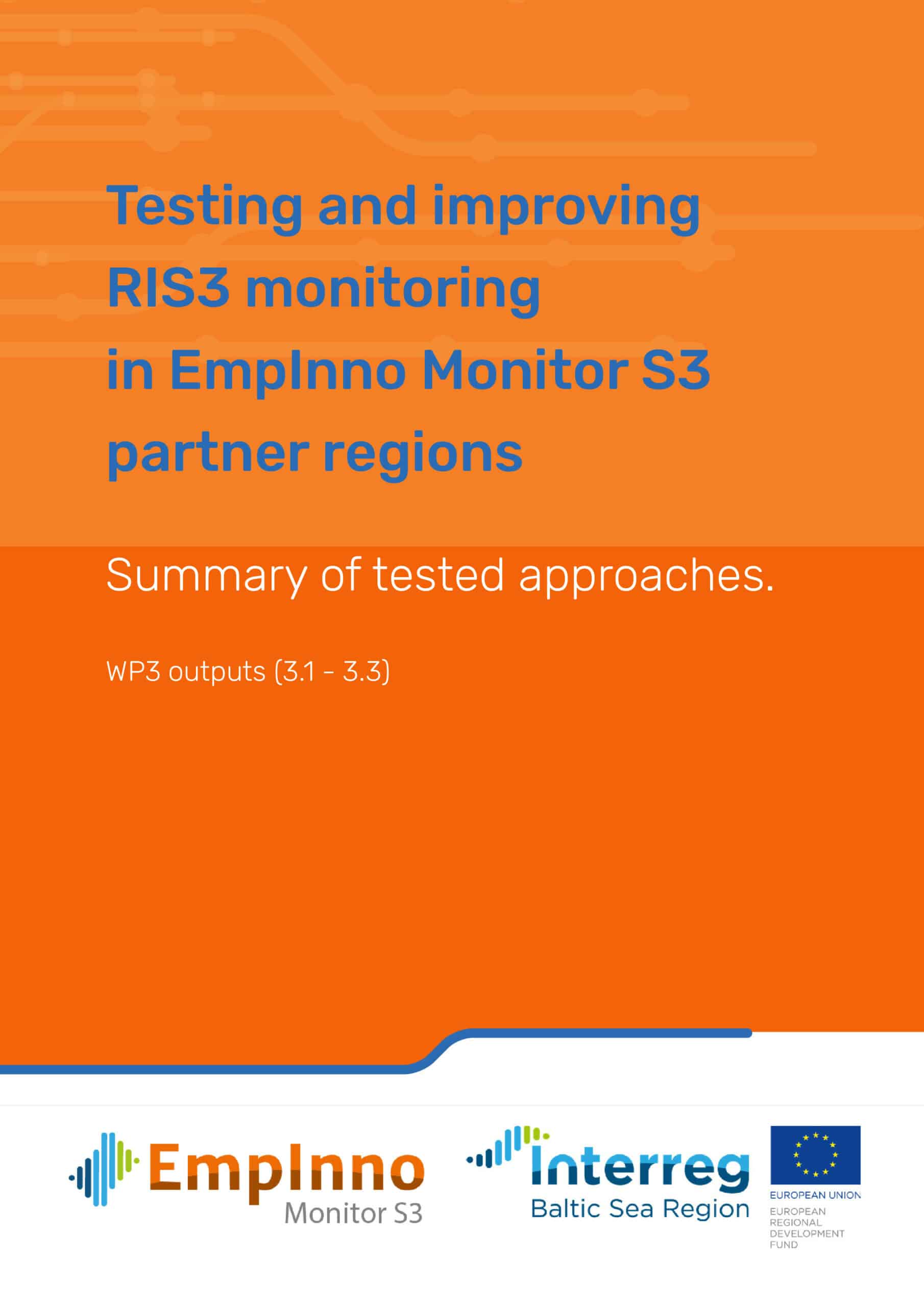EmpInno Monitor S3
Smart specialisation (S3) is a systematic process to make European regions globally more competitive through innovation. This approach was introduced to policy makers as well as other stakeholders from business level, academia and other innovation actors in 2011. Since then, more than 180 regional innovation strategies (RIS3) were established. Across Europe authorities face common problems and obstacles in the process of managing, delivering and monitoring their strategies.
To implement S3 is not trivial
On the one hand, public authorities (“strategy owners”) face common problems and obstacles in the process of managing, delivering and monitoring strategies for smart specialisations in their regions. On the other hand, innovation actors, such as business intermediaries, science parks and universities (as “strategy implementers”) often lack the institutional capacity, resources and experiences to work with RIS3. In many regions, the RIS3 are communicated insufficiently or are even unknown to the innovation actors. Compared to metropolises, medium-sized cities and
regions have on average a smaller critical mass for innovation and growth and the local economic actors are less outward oriented and this face similar challenges. And thus, the potential for innovation and growth remains unused.
EmpInno Monitor S3 continues development of monitoring
The preceding project EmpInno (S3 Empowering for Innovation and Growth in Medium-Sized Cities and Regions) concluded that authorities responsible for smart specialisation strategies should test different approaches to monitor their RIS3. Adjusting the monitoring systems shall lead to higher efficiency and effectiveness of the regional innovation policies and finally a more innovative Baltic Sea region. EmpInno Monitor S3 improves the monitoring systems of the smart specialisation strategies (RIS3) of seven regions around the Baltic Sea.
Budgets
in numbers
-
0.85MillionTotal
-
0.67MillionErdf
-
0.00MillionEni + Russia
-
0.00MillionNorway
Achievements
EmpInno Monitor S3 brought together smart specialisation strategy owners (managing authorities responsible for the smart specialisation strategies) and strategy implementers (business intermediaries, business support organisations, science parks, universities) from Denmark, Estonia, Latvia, Poland, Germany and Finland. The project supported them with developing tools to foster the implementation of RIS3. The approach was to develop and pilot the innovative monitoring methods that allow improving monitoring systems in general. As the existing monitoring lacked qualitative information from end-users and other actors in innovation ecosystems (e.g., companies, research and development community), the partner organisations introduced new solutions to improve the qualitative information.
New approaches introduced
The RIS3 practitioners across the Baltic Sea region exchanged their experiences in applying monitoring to assess the smart specialisation strategies. Different regions shared their challenges and experiences to help overcome the potential obstacles. Among the concrete improvements reached by the participating regions, such as the development of an online qualitative tool as “RIS closer to us” (a tool for direct contact with RIS3 stakeholders as part of RIS3 monitoring), or a novel 6-step approach to boost the cooperation with companies, various stakeholders and strategy owners by using modern collaborative methods and tools e.g. to engage companies more actively in the RIS3 processes, to improve the cooperation between stakeholder and clusters or to identify potential needs to re-focus the themes of cooperation to successfully implement RIS3.
Peer exchange across borders
The introduced novel approaches from seven piloting regions were summarised in a compilation of findings for sharing and inspiration. Inspiring stories, successful processes and lessons learned from all partner regions were shared at different occasions with public authorities, innovation communities, business intermediaries, business support organisations and companies.
Outputs
Design more efficient innovation policy instruments with better RIS3 monitoring. Compilation of findings.

Testing and improving RIS3 monitoring in EmpInno Monitor S3 partner regions. Summary of tested approaches.

Project Stories
Partners
Rostock Business and Technology Development GmbH
- TownRostock
- RegionRostock, Kreisfreie Stadt
- CountryGermany
- RepresentativeGert Proba
- Phone
- E-Mail
- Web
Prizztech Ltd
- TownPori
- RegionSatakunta
- CountryFinland
- RepresentativeMarko Lehtimäki
- Phone
- E-Mail
- Web
South-Eastern Finland University of Applied Sciences - XAMK
- TownMIKKELI
- RegionEtelä-Savo
- CountryFinland
- RepresentativeAnne Gustafsson-Pesonen
- Phone
- E-Mail
- Web
Tartu City Government
- TownTartu
- RegionLõuna-Eesti
- CountryEstonia
- RepresentativeSiim Espenberg
- Phone
- E-Mail
- Web
Tartu Science Park Foundation
- TownTartu
- RegionLõuna-Eesti
- CountryEstonia
- RepresentativeVaido Mikheim
- Phone
- E-Mail
- Web
Lubelskie Voivodeship
- TownLublin
- RegionLubelski
- CountryPoland
- RepresentativeKatarzyna Kiszczak
- Phone
- E-Mail
- Web
Foundation for Lubelskie Development
- TownLublin
- RegionLubelski
- CountryPoland
- RepresentativeMałgorzata Gałczyńska
- Phone
- E-Mail
- Web
Riga Planning Region
- TownRiga
- RegionRīga
- CountryLatvia
- RepresentativeIlgvars Francis
- Phone
- E-Mail
- Web
Danish Design Centre
- TownKøbenhavn K 8,2
- RegionByen København
- CountryDenmark
- RepresentativeAase Højlund Nielsen
- Phone
- E-Mail
- Web
-
Project managerAndrea ReimerRostock Business and Technology Development GmbH
-
Legal representativeChristian WeissRostock Business and Technology Development GmbH
-
Financial managerLars SchieberREM Consult
-
Communication managerLars SchieberREM Consult



